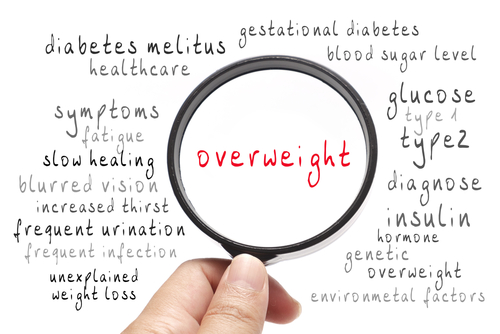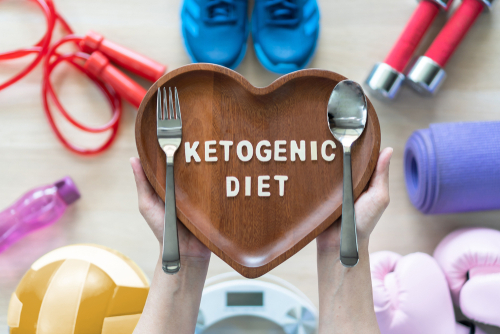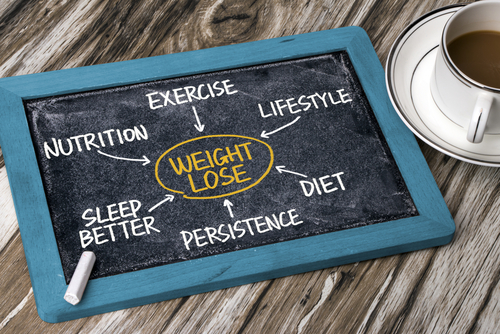
Millions of people worldwide struggle to lose weight, whether it’s a few extra pounds or more extreme cases. Weight loss is a common goal for many people, but it cannot be easy to achieve lasting success.
Long-term weight loss requires more than just a commitment to fad diets or extreme exercise routines; instead, lifestyle changes and healthy habits need to be adopted and maintained to achieve your goals. Understanding your body mass index (BMI) and current weight are important elements of the weight-loss journey.
Weight loss can be a daunting challenge, but with the right resources and guidance, it is possible to achieve lasting success. Weight loss requires dedication, meaningful lifestyle changes, and a commitment to physical activity. Whether you have a few pounds to lose or more substantial weight goals, understanding the fundamentals of effective weight loss is an important first step. With knowledge of nutrition, exercise, and psychological strategies, anyone can design an individualized plan to help them reach their desired results.
Making positive lifestyle changes such as reducing sugar intake, exercising regularly, drinking more water, and getting adequate sleep are essential for successful long-term weight loss results. Additionally, setting realistic goals can help motivate you on your journey toward better health. Creating an achievable plan that includes nutrition education and short-term and long-term goals can help ensure that you reach your desired body weight safely and sustainably.
Weight Loss: Causes and Testing

Weight loss is a common problem that affects many people and can have numerous causes. Testing for hormone problems, such as thyroid issues, is important in determining the cause of unexplained weight loss. Hormone testing may also be necessary during menopause or when hormone problems are suspected. Also, stress and bad eating habits can lead to weight loss and should be considered before any medical intervention is recommended.
Hormone tests measure levels of hormones in the body to determine whether they are in balance or if there may be an underlying issue causing weight gain or difficulty losing weight. . For example, a simple blood test can confirm if someone has hypothyroidism, which can result in excessive fatigue and weight gain or loss due to an underactive thyroid gland. Saliva hormone testing can determine if you have an estrogen or progesterone imbalance which can occur at any age.
Stress and cortisol levels have been known to be linked to weight loss, as well as insomnia. Testing these three areas can help identify the underlying cause of any weight loss. Regarding stress, various tests can be done, such as analyzing the patient’s lifestyle and mental health habits like meditation or exercise they may do regularly. Cortisol levels, a hormone released during stressful situations, can also be tested with a simple saliva test.
Genetics and gut health are two key factors that influence whether or not a person experiences weight loss. Genetics can play a role in determining how easily you burn off fat, while bad gut health can lead to impaired digestion, making it harder for you to absorb nutrients from food.
It’s important to get tested if you struggle with unexplained weight loss. Genetic tests can help to identify any inherited conditions that may be impacting your metabolism, while blood tests and stool samples can be used to check for signs of poor gut health.
Overall, finding the root cause of any weight loss is important to any weight loss program.
Benefits of Weight Loss:
Numerous studies have found that losing excess body fat can reduce the risk of heart disease, high blood pressure, and kidney disease.
Weight loss has become a phenomenon that many people strive to achieve. Not only does it give someone physical benefits but also mental benefits, as well. Those who embark on the journey toward weight loss know that there are multiple rewards for their hard work and dedication.
An array of physical health benefits come with losing weight, such as a reduced risk of coronary heart disease, stroke, high blood pressure, and type 2 diabetes. Studies have further shown that individuals who maintain a healthy body weight may reduce their risk of developing certain types of cancer. Furthermore, research indicates that decreasing one’s BMI can increase life expectancy and decrease death rates from cardiovascular diseases and other illnesses related to obesity.
In addition to the physical advantages associated with weight loss, mental health improvements have been observed.
Not only does weight loss help with physical health conditions, but it can also boost mental well-being. Eating healthy foods and being active helps promote increased energy levels, improved sleep habits, and reduced stress levels.
It’s important to remember that everyone’s body is unique, so it’s important to find an individualized plan tailored for you.
Lifestyle Changes: Diet, Exercise, and Supplements

Weight loss is a common goal for many people, and numerous studies have been conducted in recent years to better understand how it works. Studies have found that the most effective weight loss methods involve making positive changes to one’s diet and lifestyle; this includes increasing physical activity, reducing caloric intake, and avoiding processed foods. Numerous studies have also found that adding certain nutrients or supplements to one’s diet can help accelerate the weight-loss process.
A proper weight loss plan should involve both exercise and nutrition to maximize the benefits and ensure long-term success. In addition to a healthy diet and regular exercise, an individual should also focus on developing healthy habits such as getting enough sleep and managing stress levels for optimal results.
Eating well and exercising are two of the most important factors in achieving healthy weight loss. By combining a balanced diet with regular physical activity, you can reach your weight-loss goals faster and maintain them for long-term success. To help you get started, here are some tips to keep in mind when it comes to eating and working out for successful weight loss.
When it comes to eating, focus on portion control and make healthier swaps for favorite dishes. Eat smaller portions of food more frequently throughout the day rather than three large meals consumed all at once. Look to substitute high-calorie snacks with healthier options such as fresh vegetables, nuts, or whole wheat crackers instead of chips or cookies. Not only will these substitutions provide good nutrition, but they will also help reduce calories which leads to quicker results when trying to lose weight.
Eating healthy food, such as whole grains, is a great way to ensure your body gets the nutrients it needs while helping you lose weight. Consuming fewer calories than you burn will also help reduce your blood sugar levels and promote weight loss.
In addition to eating healthier foods, some people opt for plant-based diets or intermittent fasting to stay on track with their goals. Plant-based foods are an excellent place to start, as they provide essential nutrients such as vitamins, minerals, and phytonutrients while being low in calories.
For example, french fries are often considered a tasty treat, but according to health professionals, reducing their intake and opting for healthier alternatives such as steamed vegetables or fruits can make all the difference. Additionally, exercising regularly can burn calories and aid in weight loss without following stringent diet plans or starving oneself. The Mediterranean diet is particularly popular among fitness enthusiasts since it combines healthy eating with exercise routines. Moreover, scientific studies have also shown that following this diet plan can significantly reduce weight in individuals. A keto diet can also be helpful to those who want to lose weight. A keto diet is high in protein and low in carbohydrates. Carbs like rice, bread, pasta, baked goods, and sweet fruits like mango, bananas, plums, peaches, and grapes are avoided on a keto diet. Protein on a keto diet should be consumed from lean meats, fish, tofu, beans, nuts, seed, and legumes.
Meal planning can help you determine the right food intake for your daily caloric needs. Eating habits may need to be adjusted to reduce the number of calories consumed and focus on foods with unsaturated fats, such as avocados or olive oil.
If you need additional help with reaching your weight-loss goals, there are plenty of programs, such as Jenny Craig or Weight Watchers, which will guide you on what foods to eat and how often to exercise. With these programs come weekly check-ins with a coach who can advise on nutrition and activity level.
Exercise and Weight Loss

Exercise is also key in weight loss and should include activities you enjoy doing so you stick with them for the long haul. Incorporating aerobic exercises like running or cycling will work toward burning off more calories than you consume for successful weight loss results.
Regular physical activity is a vital part of any weight loss plan. Exercise helps burn excess calories, boost metabolism and reduce stress levels. To develop healthy exercise habits, start by incorporating brisk walking into your daily routine. Taking part in an online fitness class, any regular exercise can help keep your metabolism up and help you reach your goals faster. Other activities such as jogging, cycling or taking part in an online yoga class can also be beneficial when trying to stay active and lose weight regularly.
For those new to exercise, it is recommended that you aim for at least 10 minutes of walking each day and gradually increase the amount over time. Try using a step counter or pedometer to track how many steps you take each day – setting targets such as 10 000 steps can help motivate you to reach your goals quicker!
Vitamins and Detoxing for Weight Loss

Vitamins, healthy fats such as MCT oil, omega 3s, and detox supplements can help fuel your body for weight loss success. Fiber-rich foods like apples and oatmeal are great for digestion and keeping you feeling full longer between meals. Fiber supplements are a great way to ensure you get enough daily fiber. Protein shakes are also effective at helping build muscle while burning fat at the same time. Protein shakes can help you boost your metabolism and increase muscle mass which is important to better body fat. With the right combination of these key ingredients, a balanced diet will provide everything you need to reach your desired weight goal.
Other supplements that may be beneficial include omega 3’s and probiotics. Incorporating omega-3 fatty acids into one’s diet can reduce inflammation and assist with fat burning. Studies have indicated that probiotics may help reduce belly fat and make it easier for individuals to maintain healthy body fat levels over time.
Detoxing the body of toxins is one key component to successful weight loss, as these toxins can cause excess weight gain and prevent further weight from being lost. The importance of detoxing lies in ridding the body of harmful substances that may have built up over time due to our environment, the foods we eat, and other factors. Toxins are stored in our fat cells and interfere with our metabolism causing us to retain more fat than usual and stall any attempts at losing weight. To effectively detox your body, you should ensure adequate water intake daily and take detox supplements which will help flush out those toxic build-ups.
Weight loss medications
Weight loss is a major concern for many people, and many are turning to medical interventions to achieve the desired results. A new weight-loss drug called Semaglutide demonstrates promising results in assisting those who struggle with their weight-loss goals.
Semaglutide is taken as an injection once weekly and is designed to mimic the hormone GLP-1, which helps control appetite. Those who have taken this drug have seen significant reductions in body fat and increases in lean muscle mass after just 12 weeks of use. Studies performed by Novo Nordisk showed that patients on Semaglutide lost 16 percent more body weight than those on placebo injections over the 12 weeks. It was also found that patients had improved cholesterol levels, reduced waist circumference, and increased satiety compared to those on the placebo injections.
Weight loss can be a difficult journey for many. Fortunately, there are different medications available that could help make it easier. Contrave and bupropion are two of the most popular medications to aid in weight loss.
Contrave is comprised of two components: naltrexone and bupropion. It suppresses the appetite and reduces cravings, which helps with portion control. Bupropion is also an effective medication for weight loss as it increases energy levels to motivate individuals to exercise more often.
In addition, other medications like Plenity and Xenical can be prescribed if neither Contrave nor bupropion works for you.
Weight Loss: Setting Goals, Short and Long Term

The American Heart Association recommends making lifestyle changes that promote sustainable weight loss rather than focusing solely on “quick fix” methods or short-term results. This long-term approach helps ensure that individuals maintain their desired weight while enjoying lasting improvements to their physical and mental health.
Losing weight can be a difficult process, but setting goals is an important step to help you along the way. It’s important for people to set reasonable short and long-term goals to stay on track with their weight loss journey. For example, a long-term goal may involve reducing your body mass index (BMI) by at least 10%. In addition, it’s important to create realistic short-term goals that are achievable and measurable. This could involve exercising 4 times per week or eating healthier meals daily.
Weight loss programs should also be considered when setting goals, as they provide the educational support needed to reach those milestones. Participating in a program gives individuals the right direction and resources needed for success in their pursuit of health and wellness.
Weight Loss Challenges: Emotional and Physical
We all want to be in the best shape of our lives but often lack the time and motivation to make that happen. Achieving weight loss goals can be especially difficult for those with time constraints, as it is hard to find moments throughout the day to focus on diet and exercise. It takes dedication, organization, and knowledge about proper nutrition and fitness habits for individuals with busy schedules to reach their desired outcomes.
To start off on the right foot, it is important for individuals with limited free time to set aside enough dedicated hours each week specifically devoted to healthy eating and physical activity. This will ensure that they can reap all of the benefits that come along with making these lifestyle changes.
Weight loss is a challenge that many individuals face, but the journey can be especially difficult when both physical and emotional challenges are present. Emotional challenges may include feelings such as guilt or feelings of low self-worth that can sabotage an individual’s efforts to reach their desired weight goal.
In today’s world, emotional eating is a common problem when it comes to weight loss. Emotional eating can be defined as using food to cope with feelings such as stress or anxiety. This behavior can lead to overeating and cause an individual to gain weight over time.
However, with the right tools and strategies, anyone can recognize and address emotional eating to achieve their desired weight loss goals. It’s important for individuals struggling with emotional eating to understand why they may be engaging in this behavior in the first place; this could include situations that trigger cravings or low self-esteem issues that drive them towards certain foods. Acknowledging these triggers is key to developing healthier habits that don’t involve turning to food for comfort.
To overcome these obstacles and successfully reach one’s ideal weight, it is important for individuals to recognize and address both the mental and physical components of their struggle. This could involve seeking professional help to work through underlying emotions or exploring nutrition options such as meal prepping or counting calories.
If you’re looking to lose weight, it’s important to be aware of the physical obstacles that can arise and make weight loss difficult. Everybody is different, from minor aches and pains to more serious injuries, and will respond differently when attempting to shed excess pounds.
Injuries or limited mobility from medical conditions may prevent someone from performing certain exercises necessary for reaching their weight loss goals. However, there are plenty of non-weight-bearing exercises and activities that can help with such physical obstacles. Swimming is an excellent form of aerobic exercise that doesn’t require any use of your feet on the ground, which means it’s perfect for those who can’t put pressure on their legs due to injury or limited mobility. Other types of limited mobility exercises include using resistance bands and light weights to target specific muscle groups while sitting down in a chair or on the floor. With a combination of these non-weight bearing and limited mobility exercises, anyone with physical obstacles can work towards achieving their desired level of fitness and health.
Injuries don’t have to be a major roadblock in your pursuit of health and wellness. The key is understanding how best to care for your body during this process, as well as knowing when it’s time to take a break or seek professional help if necessary.
Support Systems: Encouragement and Accountability for Weight Loss
Weight loss can be intimidating, but with the right support system in place, it doesn’t have to be. Achieving weight loss goals requires encouragement and accountability from those closest to you. A positive support system will ensure you stay on track and confidently reach your goals.
The people surrounding you are essential for successful weight loss. Those supportive of your efforts will encourage you when needed, along with helping to hold you accountable for any slip-ups that may occur along the way. They can also celebrate successes, both big and small, which reinforces the progress being made toward achieving your weight-loss objectives.
Additionally, having someone there to remind you why this goal is important can help keep motivation levels high – even when progress slows or stalls completely.
Track Your Progress and Celebrate Small Victories

Weight loss can be a daunting task for many people. However, losing weight can be an achievable goal with the right tools and mindset. One of the best ways to stay on track is to track your progress. This means celebrating small victories along the way and not just focusing on the result.
Various apps are available that make tracking your progress easier than ever before. Technology has made tracking and managing fitness goals easier than ever with weight loss apps, such as My Fitness Pal and Carb Manager. Fitbit monitors physical activity levels and also provides body composition analysis testing. For those looking to lose weight, these options provide a great way to set goals, track progress and get personalized advice.
Weight-loss app users can create custom meal plans tailored to their needs, helping them find the right balance of nutrition while cutting calories. Other features include calorie tracking, diet reminders, and support groups that help keep users motivated throughout their journey. Additionally, they can sync up with other devices like Fitbit or Apple Watch to monitor progress on the go. With many tools available at your fingertips, weight-loss success is within reach for anyone willing to put in the effort!
In addition to tracking calories, these apps can help you measure your inches and analyze what has worked and what hasn’t when it comes to weight loss. Focusing on inches rather than pounds will motivate you by seeing tangible results each week instead of feeling discouraged if you don’t see any changes on the scale immediately.
Conclusion: Weight Loss Journey
When it comes to weight loss, the journey to a healthier, you can be long and challenging. Finding the best way to reach your goals requires hard work, dedication, and motivation. While there are many different weight loss programs available today that promise quick results, determining which one is right for you may take some trial and error. Ultimately, when it comes to finding success in weight loss, creating sustainable lifestyle changes that become part of your overall health plan should be the goal.
Making small incremental changes each day can have a big impact on your long-term goals. For example, focusing on eating nutritious meals more often and adding more physical activity into your daily routine can lead to better overall health benefits than any weight-loss program alone could provide.

